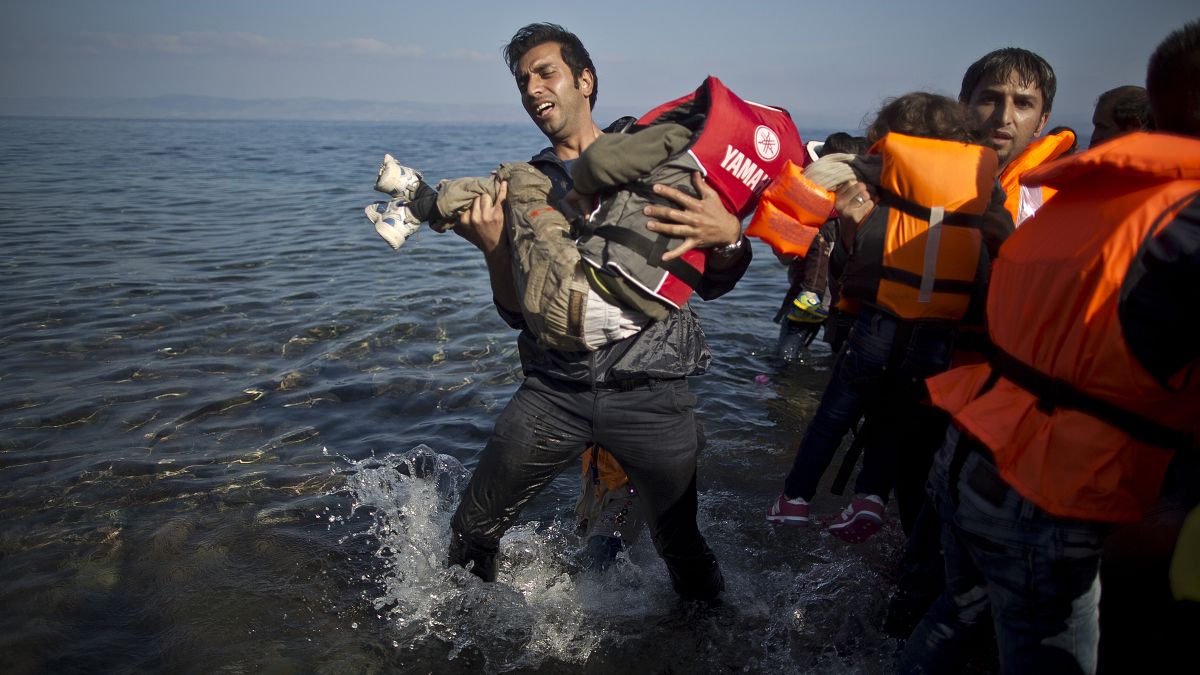More than 20,000 migrants have lost their lives trying to reach Europe since 2014. There is growing criticism of Europe's inability to prevent these tragedies.
Nothing changes. Migrant boats are sinking one after the other in the face of Europe's powerlessness.
More than 20,000 lives have been lost trying to reach Europe since 2014, according to figures from the International Organisation for Migration (IOM). "I fear there will be a normalisation of these deaths," said Director General, Antonio Vitorino. "This sea has become a graveyard", says Carmine Conte, legal analyst at the Migration Policy Group.
Illegal migrants being turned back
"When migrants arrive near European borders, they are forcibly turned back," explains Bernd Kasparek, a specialist at the Berlin Institute for Empirical Research on Integration and Migration (BIM).
For years, the Greek Coast Guard has been accused of illegally turning back migrants. This would be in contravention of the Geneva Convention, which prohibits push-backs without the possibility of seeking asylum – and is signed by all EU member states.
These violations lead migrants to take longer and more perilous routes
Before they disappear at sea, the coastguards of nearby member states launch operations to rescue survivors.
Rescue at sea is their responsibility. The SAR (Search and Rescue) Convention, signed in Hamburg in 1979, sets up search and rescue zones under the control of European Mediterranean states. But NGOs denounce a lack of coordination.
"When we call the coordination centres (of the member states, editor's note), they don't give us any information. In Malta, we were even told 'we don't work with NGOs'. We have to find the boats ourselves", says Sea-Watch spokesman Felix Weiß.
A chain of ‘non-assistance’ with only one way out. "It's only logical that they should end up capsizing," he laments.
The European Commission's Directorate-General for Migration and Home Affairs did not respond to Euronews’ requests for comment.
Some specialists point to the failure of the European migration policy.
"With the Amsterdam Treaty of 1999, it was supposed to be a European competence. But after the crisis of 2015, many states went back to implementing their own national policies," explains Kasparek. He cites as examples the abolition of the right to asylum in Hungary, or refoulements at the Greek border.
"Deterrent migration policies have always been failures", says Mathieu Tardis, co-director of the Synergies migrations research centre. “The people who take these migration routes are aware of the danger. "We have to stop thinking that they are not rational," he explains.
"It has become so dangerous and expensive for migrants to reach Europe, that they would lose their entire investment if they left," Tardis adds.
The trip aboard a boat to Europe costs between $8,000 and $10,000.
"We're putting up these huge barriers and forcing people to stay stuck in very bad conditions," argues Kasparek.
What can be done to prevent further tragedies?
In the future, these lives could be saved.
"We need a European rescue operation," says Felix Weiß of Sea-Watch. Matt Saltmarsh, spokesman for the United Nations High Commissioner for Refugees (UNHCR), adds: "This process must be led and financed by the States.”
